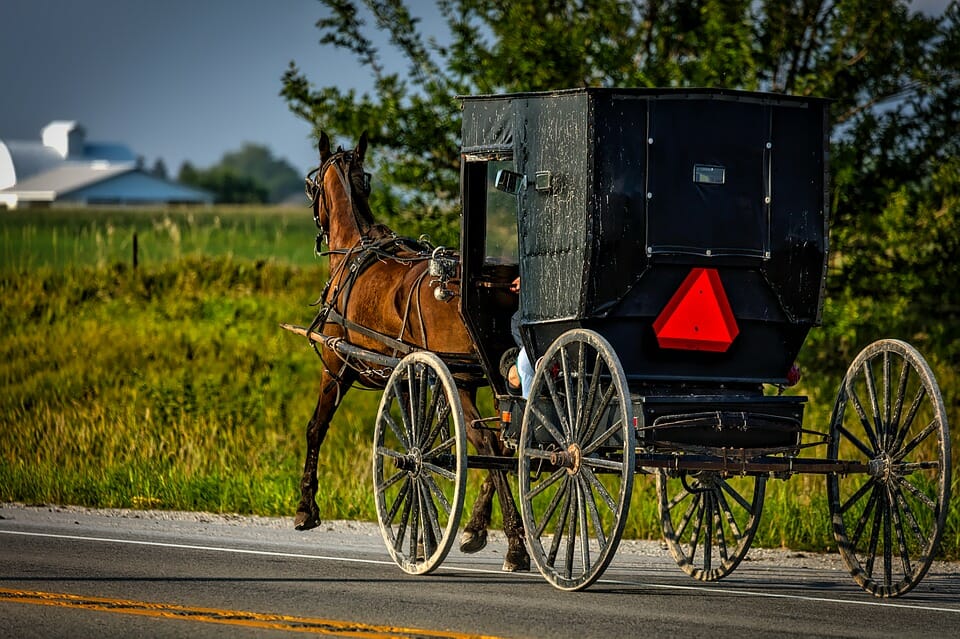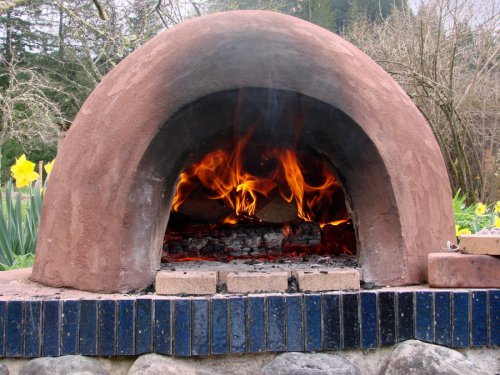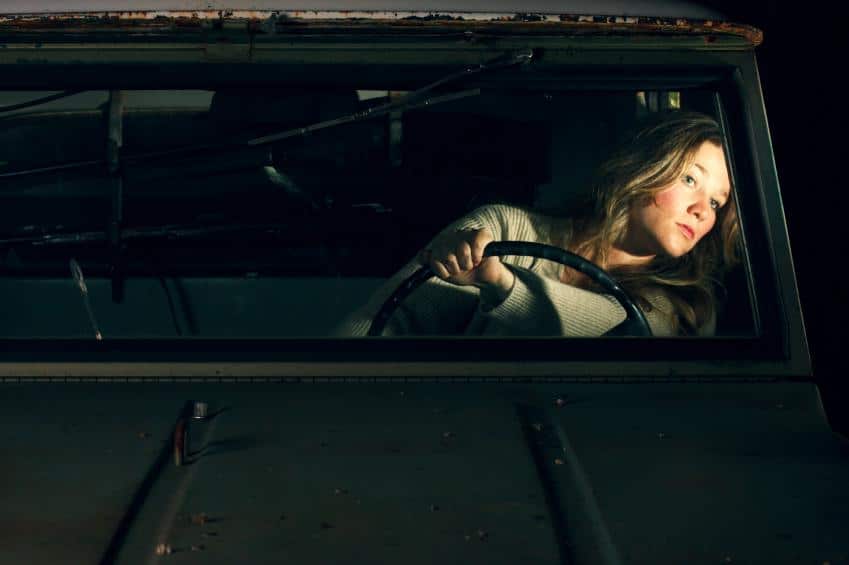I have friends, both conservative and liberal, who are focused on disasters which may await us: terrorism, government oppression, global financial collapse and anarchy, peak oil, pandemics, catastrophic climate change… the list is endless. Some of these fears strike me as more realistic than others, but I don’t know what the future holds and neither do they. We have to live as best we can in the face of this uncertainty. This is harder to do because we’re constantly bombarded by advertisements and news coverage encouraging us to be afraid, to feel helpless, and to blame and distrust some group of “Other People.” These attitudes weaken us and encourage us to harm rather than help one another.
I think that it’s possible to deal with our fears for the future in a way that makes our present lives more sustainable and more satisfying. Even when it’s not in crisis mode, the global consumer economy damages people—both those who are overworked and robbed of resources, and those who become passive consumers of goods instead of producers of basic necessities. Simplifying our wants and learning to provide for our needs unplugs us from this destructive system, brings competence and satisfaction in the present, and strengthens us for future upheavals.
 This simplification works best when it’s practiced by communities of neighbors who help each other morally and materially. These needn’t be groups of like-minded people. People who will never come together as voters can come together as good neighbors. When we do, we benefit both from the practical help we can offer each other and from the breaking down of barriers between us. We’ve been promised that perfect love drives out all fear. I haven’t reached that level, but I believe that our imperfect attempts to love, live with, teach and help our neighbors move us in the right direction.
This simplification works best when it’s practiced by communities of neighbors who help each other morally and materially. These needn’t be groups of like-minded people. People who will never come together as voters can come together as good neighbors. When we do, we benefit both from the practical help we can offer each other and from the breaking down of barriers between us. We’ve been promised that perfect love drives out all fear. I haven’t reached that level, but I believe that our imperfect attempts to love, live with, teach and help our neighbors move us in the right direction.
I’ve spent the past ten years living and working with my mother and brother in a small Christian intentional community. Our mission is to live an alternative to the consumer culture. We raise our own food—vegetables, fruit, eggs, milk and meat—organically instead of relying on food tended by ill-treated migrant workers, or treated with toxic chemicals and shipped over long distances. We heat our buildings with firewood from our property and we often run errands by bike or cargo tricycle. This minimizes our dependence on fuel imported from the Middle East at great human cost or extracted domestically at great environmental risk. We grow extra food to give to a local soup kitchen and other neighbors. We cut extra firewood and lumber, give some to the neighboring homeless shelter and sell the rest. We invite people to help us with our work and learn how to provide for themselves and their neighbors. Practice in simple living and basic skills is one of the best gifts we can offer to our neighbors as funding to assistance programs keeps getting slashed and the lines of people seeking help keep getting longer. People of diverse backgrounds and convictions accept the invitation. Their reasons vary widely; most have less to do with preparing for future disasters than with improving their current lives.
New Book, Proverbs For Preparation, gets you ready for hard times ahead.
Some are motivated by economic hardship. A woman laid off by the paper plant came by to see how we raised our goats so that she could provide her own milk, cheese and meat. A seasonal construction worker recovering from an injury spent three months helping and learning with us; he went home resolved to consume less and to raise gardens and animals so that he could stay with his family year-round instead of having to leave home during the off-season in order to find work to feed his children.
Some are seeking to build community. We’ve given training, seeds, and garlic to several people who went home to start community gardens. One organized families in his congregation to help with the work and take produce home. This helped families who struggle to pay for fresh food, and it deepened the church fellowship. Another planted a garden in a vacant lot at the intersection of three city neighborhoods with occupants of different ethnicities who didn’t get along. Some people from each neighborhood missed fresh food and the chance to work with their hands. Over time friendships formed between gardeners who would have avoided or quarreled with one another if they’d met on the street before.
Some want a constructive outlet for their energy and a chance to be useful. Young people come to us to do community service as part of their probation. They are often wary and unhappy when they arrive, but many cheer up when they see that their work is needed and appreciated (and that our work, like theirs, is unpaid). We teach them to do basic things that interest them—sharpen a chain saw, run a sawmill, transplant seedlings, harvest and cure garlic. Some have said that they got into trouble because they didn’t have anything productive to do. One young man who wasn’t currently required to do community service called us because he wanted to come and help before he got restless enough to run afoul of the law again. We’ve also spent time with younger kids from struggling families. My brother helped some of them to fix their bicycles. They were pleased, and then they wanted to know if they could help fix bicycles for someone else. They wanted a chance to be the givers.
Some are looking for a wholesome environment for their children. Families come to help us with our work and also to explore the woods, fields, streams and ponds with us. We offer field guides and dip-nets and magnifying glasses and binoculars to help them explore. We also offer a respite from the pressure of advertising and the distractions of electronic media. We see the kids slowing down, paying attention and enjoying the world around them. Parents comment on how good, and how unusual, it is to spend hours working and playing with their kids with no bickering about TV. Young people come in from flying kites, walking on stilts or picking berries and exclaim that they hadn’t realized you could have fun without spending money.
How To Get Ready For The Coming Hard Times
We generally receive from our guests as much as we give. For one thing, we need help. It’s easier to grow enough food to send to the soup kitchen when we have extra hands to help plant, weed and pick, and to send firewood to the homeless shelter when there are extra hands to help split, load and unload. Visitors from different ethnicities, classes and political persuasions help us to see life from a new perspective and keep us from becoming narrow-minded. Guests see the beauty of the place and the satisfaction of the work with new eyes when we’re getting tired and cross and stuck in our routines. Some of them are there for us when we feel tired and stuck and need practical help, advice or understanding.
Our project suits our very rural area. We know people working toward similar goals in different settings. One friend works in the fiber arts room of her suburban community center; she’s taught sewing and quilting to beginners, learned weaving, spinning and dyeing from experts, and become part of a community that offers support to members dealing with deaths in the family, sick children, lost jobs and other frustrations of daily life. Other friends take part in local book- and tool-sharing projects which allow families to spend less and to get to know one another.
These networks of local knowledge, caring and competence enrich the lives of their members now and could prove very valuable in a crisis. In these fearful and divided times, I hope all of us will keep forming such networks, keep learning basic skills and keep reaching out to our neighbors, whether or not we agree with them about everything. They’re probably as frightened as we are. Like us, they’re probably also capable of practicing neighbor-love, growing out of fear and into a more abundant life.











